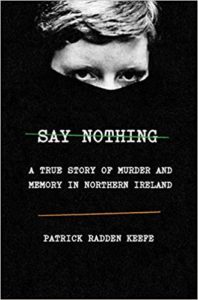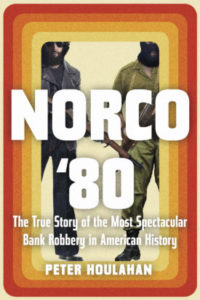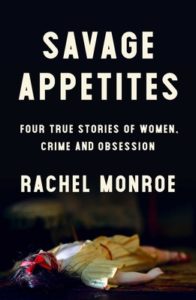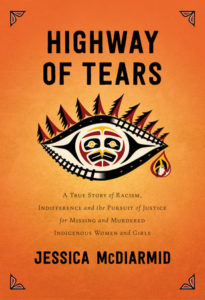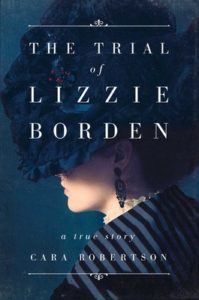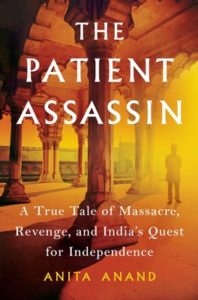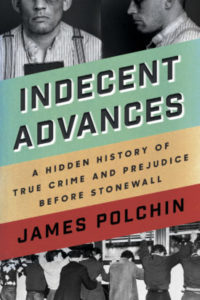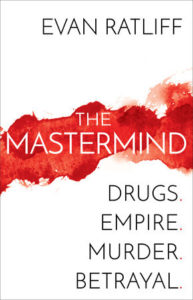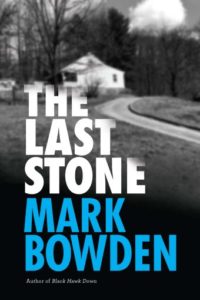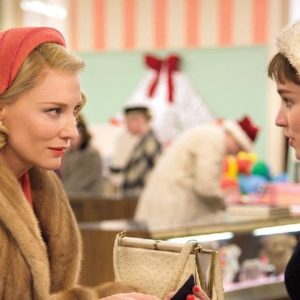If anyone came into 2019 thinking true crime had had its day, well, hopefully you didn’t put too much money down on that wager. The phenomenon continues, and why shouldn’t it? The kinds of true crime stories authors, podcasters, and documentary makers are telling seem to get more sophisticated, nuanced, and emotionally powerful with each passing year. The crime stories the culture is consuming with such a voracious appetite aren’t the lurid, semi-exploitative tales of yesteryear, but rather ambitious and empathetic portraits of crime and its effects. 2019 saw an increasing shift toward the perspective and stories of victims and of the historically voiceless. It saw, also, some of the hardest-hitting, most urgent investigative journalism of the day. In short, everything good nonfiction literature should be can be found right here in the true crime space.
It’s been a rewarding, illuminating year for true crime readers, and there’s every sign of more to come. For now, we’re looking back at the very best and most accomplished crime nonfiction books of the year, with a host of notable selections below.
Patrick Radden Keefe, Say Nothing (Doubleday)
In Say Nothing, Patrick Radden Keefe takes us into the murky history of the Irish Troubles’ Disappeared—a flashpoint both during the conflict and in the ability to process its legacy. Keefe traces the history of the Troubles through the murder of a mother of eight, kidnapped for her supposed support for the British. Keefe uses this single incident as a jumping off point to explore every aspect of the conflict, and in particular, the memorialization of conflict through oral history projects (when Boston College embarked on an effort to record the stories of the conflict, the IRA had fractured over the Good Friday Agreement and some were willing to talk; their stories ended up leading to a surprising reckoning both in Ireland and abroad). A thrilling tale all the more harrowing because it is entirely true, Keefe’s magnum opus takes us through the personal and political for a story as human as it is honest. Beautifully and forcefully written, well-researched, and not to be missed.
Peter Houlahan, Norco ‘80 (Counterpoint)
Southern California in the 1970s was a bank robbery hot zone, but there was one robbery in particular that caught public attention, shifted law enforcement tactics and attitudes, and seemed to incorporate strands of nearly all the day’s cultural movements, from the self-help gurus sweeping the state to the militarization of grassroots ideological collectives. Peter Houlahan tells the story of a small outfit of bank robbers who started out small-time and followed their apocalyptic leader onto the national stage as a job turns violent. Like American Heiress in the summer of 2016, this looks like the true crime book that will launch a hundred conversations.
Rachel Monroe, Savage Appetites: Four True Stories of Women, Crime, and Obsession (Scribner)
Rachel Monroe’s essay collection Savage Appetites is a revelation. There’s been a host of articles over the past decade (and further) asking why women love true crime (as if this should even be a question, given how long feminine ghoulishness has been an established fact). While most like to embrace a simplistic answer that has women interested in true crime as a mode of self-protection, Rachel Monroe knows that the answer is far more complicated. Through examining four archetypes of true crime obsession, illustrated by the cases of four distinct women, Monroe is able to present a layered portrait of women with a host of motivations, not all flattering, but all equally valid. Savage Appetites is one of several books to come out interrogating our societal interest in true crime, and our need to second-guess the interests of women.
Jessica McDiarmid, Highway of Tears (Atria)
Jessica McDiarmid’s Highway of Tears is, quite possibly, the most depressing book ever read; partly because it depicts an ongoing crisis, but also because this crisis, despite massive public outcry, has failed to be addressed. For decades, Indigenous women and girls have been disappearing along the notorious “Highway of Tears” in British Columbia, where young women with few transportation options are often forced to hitchhike as the only way to get where they need to be, and where cell phone service and police call buttons are virtually nonexistent. National outcry spurred by Indigenous activism led to a plan by the Canadian government to increase safety measures along the highway, but with little budget and an increasingly conservative political stance, the government has failed to implement any of these safety measures. McDiarmid concludes the book not with the capture of a killer (or killers, as is suspected), but with the announcement that protections for Indigenous women and girls in Northern British Columbia are so poor, and removal of children from parents so frequent, as to constitute a modern-day genocide.
Cara Robertson, The Trial of Lizzie Borden (Simon & Schuster)
We’ll never stop being curious about Lizzie Borden, or the legal machinations that helped her get away scot-free, and The Trial of Lizzie Borden satisfies on both fronts. This meticulously researched true crime account of Lizzie Borden’s dramatic trial brings in newly unearthed materials for a novel take on a case that continues to fascinate and horrify in equal measure. Of particular note is Robertson’s choice to not speculate about Borden’s likely guilt or innocence, but instead to focus on what interest in the case revealed about the stifling lives of upper-class women of the era.
Anita Anand, The Patient Assassin (Scribner)
In 1919, the dusty gathering place of Jallianwallah Bagh in the Northeastern Indian city of Amritsar became the site of a shocking bloodbath when British efforts to suppress perceived local unrest turned violent, and British soldiers opened fire into the crowd. A young man named Udham Singh swore vengeance against the British commanders responsible for the massacre, and spent the next 20 years engaged in a quest for vengeance that would take him all over the story. Anita Anand uses Singh’s life to tell not only a thrilling story of adventure and vengeance, but also to explore the harsh methods used to keep colonial hierarchies in place.
Hallie Rubenhold, The Five: The Untold Stories of the Victim of Jack the Ripper (Scribner) [OR]
The premise of Hallie Rubenhold’s fastidious and respectful book is so intuitive and obvious it’s horrifying that no one has presented its argument to such a thorough extent before: it profiles the five women who were killed by Jack the Ripper during the famous Whitechapel murder spree in 1888. In 131 years of cultural fascination with Jack the Ripper, the emphasis has largely been on the anonymous serial killer, and not on the five women whose lives not only completely ended at his hand, but were also absorbed into his legacy: Polly Nichols, Annie Chapman, Elizabeth Stride, Catherine Eddowes and Mary Jane Kelly. The book honors them; it is about their entire lives before their tragic ends, illuminating what it meant to live as a woman in Victorian society rather than die as one.
James Polchin, Indecent Advances (Counterpoint)
Polchin’s harrowing account of the history of violence against queer men hits shelves on the eve of the 50th anniversary of the Stonewall riots. It’s perfect timing for a book that dives deep into these never-before-told true crimes, and looks at the power mainstream messaging had on both the violence and the mounting resistance. Resurrecting a forgotten era of queer history, Polchin masterfully weaves brutal true crime research with critical analysis of the social history, exploring the way the media and nascent psychological theories were weaponizing prejudice and perpetuating a deviant stereotype of gay men.
Evan Ratliff, The Mastermind (Random House)
Ratliff has been opening eyes with his penetrating journalism from far-flung corners of the tech and criminal underworld for years, putting him in a perfect position to tell the shocking story of Paul LeRoux, a crime kingpin for the new century. LeRoux began as a programmer who saw a gap in the internet’s black market and began to fill it—with drugs, guns, and eventually all manner of contraband and illicit activity, building one of the world’s most formidable and deft criminal networks. Ratliff’s investigative chops and tech savvy are second-to-none, and in The Mastermind he’s able to tell both a gripping true crime story and a larger tale about the evolution of organized crime in the internet era.
Mark Bowden, The Last Stone (Atlantic Monthly)
In 1975, two girls were kidnapped from a mall outside Washington D.C. The kidnappers left few viable clues and while the region was glued to the story, authorities were stymied. Almost forty years later, a detective’s revelation sparked a new investigation into the case and a suspect imprisoned on other charges who, along with his reclusive family, seems hellbent on keeping his secrets. Bowden, now an acclaimed author of epic crime and war histories, knows the case inside and out—he was a young reporter just starting out in Baltimore when he was tasked with covering the story. In The Last Stone, he dives back into the case alongside the detectives and tells with enormous skill and empathy the story of those missing girls and the effort to bring their assailants to justice.
___________________________________
Notable Selections
___________________________________
Randall Sullivan, Dead Wrong: The Continuing Story of City of Lies, Corruption and Cover-Up In the Notorious BIG murder Investigation (Atlantic Monthly Press) · Maureen Callahan, American Predator (Viking) · Claire Harman, Murder by the Book: The Crime That Shocked Dickens’s London (Knopf) · JoeAnn Hart, Stamford ‘76: A True Story of Murder, Corruption, Race and Feminism in the 1970s (UOI Press) · Matthew McGough, The Lazarus Files: A Cold Case Investigation (Henry Holt) · Dan Bilefsky, The Last Job: The “Bad Grandpas” and the Hatton Garden Heist (W.W. Norton) · Carson Vaughan, Zoo, Nebraska: The Dismantling of an American Dream (Little A) · Josh Levin, The Queen (Little, Brown) · Casey Cep, Furious Hours (Knopf) · Kate Fazzini, Kingdom of Lies (St. Martin’s) · Ryan Jacobs, The Truffle Underground (Clarkson Potter) · Karen Abbott, The Ghosts of Eden Park (Crown) · Fred Vermoral, Dead Fashion Girl (Strange Attractor Press) · Sady Doyle, Dead Blondes and Bad Mothers (HMH) ·


